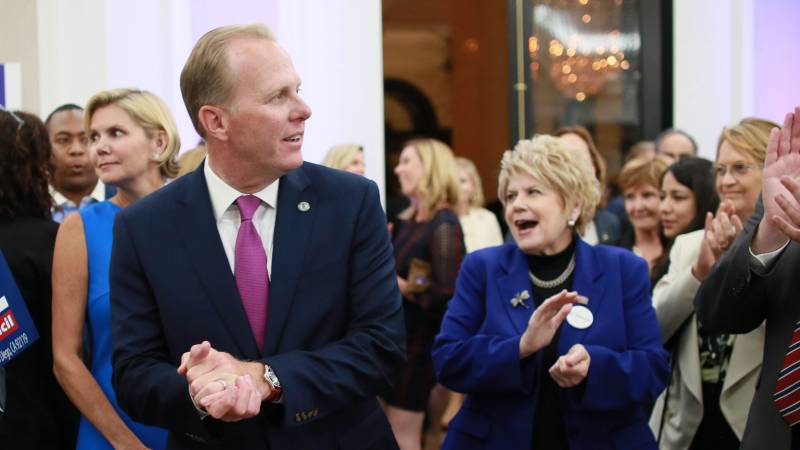"California has become the land of broken promises," Faulconer says, concluding that "I know we can clean up California and that's why I'm running for governor."
The 54-year-old Republican is promising a "California comeback," saying he will make Newsom's much-criticized handling of the COVID-19 pandemic the centerpiece of his initial pitch to voters. Faulconer has criticized Newsom's management of the pandemic as erratic.
"Look, we've had some businesses in California that have been open and shut five different times," Faulconer said on Fox News last month. "The fact that we had outdoor dining shut these past several months, again, when there was no science behind the transmission of the virus in outdoor dining settings, I think speaks volumes."
"That's why so many Californians up and down the state are frustrated and at their wits end," he added.
Faulconer enters the governor's race after declining to run in 2018, despite the urging of top party leaders who thought his relatively moderate philosophy on issues like immigration, LGBT and abortion rights ,and climate change would appeal to independent voters and more conservative Democrats.
In the end, Newsom crushed Republican John Cox in that election 62% to 38%.
Faulconer has been involved in the latest campaign to recall Newsom, which has until March 17 to turn in about 1.5 million valid signatures.
Although largely avoiding partisan politics as mayor of San Diego, Faulconer intensified his criticism of Newsom after the governor's widely covered — and lambasted — dinner in November at the posh French Laundry restaurant in Napa, where he joined lobbyists and others for a birthday party with guests who did not wear masks. The ill-timed visit came as Newsom was urging Californians to stay at home.
"He can dine on a $350 meal at one [of] California's fanciest restaurants during the worst recession in generations. But you definitely can't," Faulconer posted on Twitter in November. "Can you believe this? I can't."

